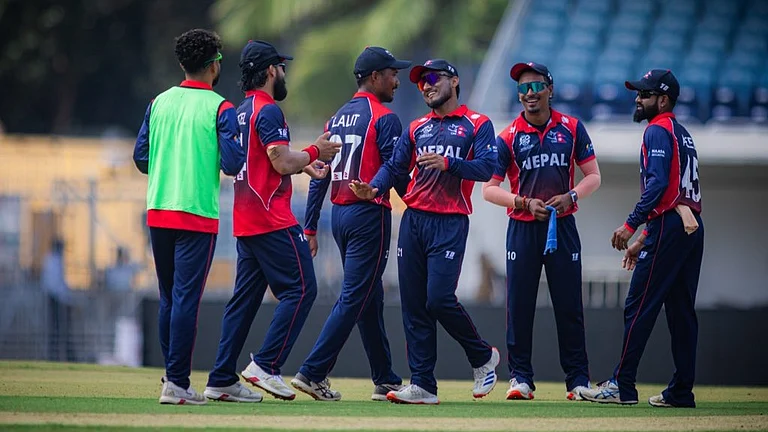McHERO: "In the past two years we have developed suppliers by giving them access to world-class, highyielding techniques," says Amit Jatia, managing director, Hardcastle Restaurants which will run the Bombay outlets. Says Steve Simpson, vice-president, international: "98 per cent of the raw material is locally procured." That’s substantial potential business opportunity. Global technology inputs have put several suppliers on the fast track. Cheese supplier Dynamix is already exporting cheese worth over $10 million. Lettuce growers used to throw away lettuce heads, selling only the leaves. McDonald’s is buying the heads which weigh much more and provide better returns. The lettuce quality has improved and is being exported.
The company has introduced milk farmers to controlled farming to improve yield. It also claims to have bettered profit margins by helping the farmer to avoid middlemen in some cases. So the potato supplier directly sends his produce to Terai Foods which makes the french fries.
Add to that new improved management techniques. The entire staff has gone through a rigorous training schedule at McDonald’s Corporation which trains more people than the US Army annually. And that includes everything from cleaning toilets to coping with customer ire. And each outlet will create around 110 jobs.
"We promise world class quality in food processing, stringent hygiene standards and high-value food," says Jatia. Besides the cost of real estate, an investment of Rs 3 crore per outlet is going into quality machines, automated systems so that food isn’t touched by human hands, quality service and so on. "Even the water we provide is specially treated at every outlet," says Jatia.
McVillain: October 16 has been for some years now observed as the Annual World Day for Action against McDonald’s. Green activists have been ensuring that more and more people round the world are exposed to the grim realities that they say lurk behind the $1.4 billion-a-year advertising and image-building exercise. Activists allege that behind the friendly, family-restaurant image lurks a mercenary, money-grabbing bully.
Among the allegations: McDonald’s sources a substantial amount of its beef from Brazil and is thus responsible for significant rain forest depletion. High turnover at outlets points towards bleak and ruthless working conditions. The company is particularly harsh with critics. Five Greenpeace activists in London were served libel writs when they published leaflets declaring what was wrong with McDonald’s. While three cowed down the other two have been fighting for over two years now. The case, known as the McLibel suit has become the biggest source of negative publicity for the corporation involving 28 pre-trial hearings of over 170 witnesses and over 40,000 pages of documents.
In Scotland, the company has asked a small sandwich shop, McMunchies to change its name because the ‘Mc’ prefix belongs to its registered name. Scots are up in arms asking whether the prefix originated in Scotland or Illinois. The much-touted safety standards too have been subject to questioning. The Public Health Laboratory Service of London has confirmed that a six-year-old girl’s death due to a fatal virus found in undercooked meat has been traced to the beef she was consuming in burgers days before she died. The parents claim she ate only at McDonald’s. In 1991, the company is known to have made a series of out-of-court payments without admitting liability to people allegedly infected after eating burgers. More than 700 claims have been made by people about McDonald’s coffee scalding them.
Environmentalists claim that thousands of tonnes of unnecessary packaging is used by McDonald’s every day. Intensive agriculture and animal farming involves heavy use of chemicals and release of some more. The animals are being reared in most inhuman ways, they allege.
And finally, the food. Will all ethnic food and sensible eating habits be replaced eventually by the single global bun, ask rueful nutritionists. The outlets have toys and other attractions for children. Activists see these as decoys to trap youngsters in a junk culture in their impressionable years.
Food Value: Outlook asked Dr Vijaya Venkat, leading nutritionist and health activist, to rate some popular fast food items on six food value parameters (see table). "In order to get any real nutrition out of food like this, the human body has to work much harder," she says. "Our body evolved a pattern to digest food between 20 minutes and 2-3 hours. These foods take six to 72 hours to digest, and leave a lot of toxic residue behind. These foods deplete the body of reserves rather than replenish them." The body requires 85-90 per cent simple sugars, 4 per cent proteins, 2 per cent of vitamins and just 1 per cent each of fibre and fat. "Fast food spoils this balance. Counting calories in food is distracting attention from the issue of health," she stresses. Fast/junk food is high in fat, complex sugars and salt, and low in fibre and vitamins. Such a diet is linked with greater risk of heart disease, cancer, diabetes among other ailments. "These foods are ethically disastrous," says Venkat.


























